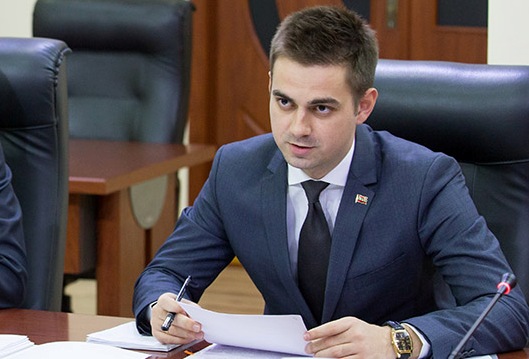According to him, even now not all are ready to pass it
Deputy Minister of Foreign Affairs of the PMR Dmitry Palamarchuk was a guest on the morning broadcast of Radio 1. The conversation focused on the preservation of a beneficial trade regime with the EU for the Pridnestrovian enterprises, as well as on a number of current challenges and threats of the external nature, which Pridnestrovie faces.
As Dmitry Palamarchuk pointed out during the broadcast, the agreement on duty-free export of Pridnestrovian goods to European markets has no expiration date. However, according to the diplomat, today there are a number of negative factors that could endanger the normal functioning of the developed mechanism of trade with the EU.
“What is meant here is that on 4 November this year border and customs services of Moldova and Ukraine reached an agreement on setting a joint customs and border control at the Kuchurgan checkpoint. We regret to note that the agreement was reached at the site of the European organization EUBAM” – said Dmitry Palamarchuk.
“The agreement according to which Pridnestrovie will be able to export goods to the European market, its implementation in fact is a test for all parties in this process. And, from all appearances, even now not all are ready to pass such test, because the construction of infrastructure for the joint control at the Kuchurgan checkpoint may present very serious risks for the Pridnestrovian side, and generally for the sphere of security in the region-wide context” – emphasized the Deputy Minister.
In the dialogue with the radio host Dmitry Palamarchuk noted that the economic blockade was initially meant to be an effective instrument of influence on the republic. “Fortunately, Moldova did not succeed in forcing Pridnestrovie to make concessions by military or outreach means, so they chose such seemingly depoliticized sphere as economy. The Republic of Moldova has taken the path of putting our exports under control in 2006, and subsequently during 2014-2015, especially after the Resolution no. 117 of the Cabinet of Ministers of Ukraine that forbids importing to Pridnestrovie not only excisable goods, but also any goods by PMR’s economic operators not registered in Moldova, a fertile ground has been created for the total control of Pridnestrovian imports” – stated the diplomat. “What role in this situation the European Union plays – the issue is quite unclarified for the moment” – he made a point.
According to the diplomat, currently Pridnestrovie is addressing the problem only by political and diplomatic means, but also working on “measures of some other kind”.








